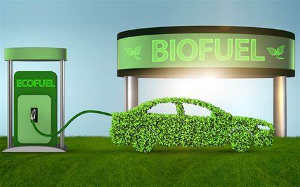No Alternative to The Car: Green Fuel Alternatives Beyond Electric Vehicles

The latest National Travel Survey (NTS) reveals significant insights into how travel patterns have evolved.
In 2023, the average number of private and motor trade car journeys increased by 6%, making around 915 trips per year, or roughly 18 trips per week.
While this growth indicates a rise in travel activity, the figures are still 4% below pre-pandemic levels in 2019.
The NTS gathers data on residents’ personal travel, offering a clear picture of trends across the country. Using a mix of interviews and seven-day travel diaries, the data highlights a shift in transportation modes.
In 2023, private transport methods, like driving, being a passenger, or using motorcycles, all showed growth, while public transport use also increased, though neither fully recovered to pre-Covid levels.
Driving continues to dominate as the most frequent mode of transportation, with drivers making 363 trips per person on average and passengers logging 185 visits. Although women made more car trips than men, men typically embarked on longer journeys, which could be reflected in the cost or an insurance policy from your local insurance broker.
Alternatives to EVs in Development.
While these trends reflect a recovery in travel activity, there is growing attention on the future of carbon-neutral mobility.
Although much of the conversation is focused on battery-powered electric vehicles (EVs), several alternative technologies are being developed by motor manufacturers, such as:
Hydrogen Vehicles (HEVs)
Hydrogen vehicles (HEVs) can be powered by either combustion engines or fuel cells, with the latter offering higher efficiency. Hydrogen-powered vehicles offer fast refuelling and, with proper infrastructure, could be a zero-emission alternative for heavier vehicles.
eFuels
eFuels, created from green hydrogen and CO2 capture, are a promising alternative to traditional fuels. These synthetic fuels can be used in existing combustion engines, offering a transitional solution toward decarbonisation.
Compressed Air Vehicles (CAVs)
Compressed air vehicles (CAVs) offer a unique, low-cost solution for urban mobility. These vehicles use compressed air to power a reversible engine, making them an environmentally friendly alternative.

Hydro-Treated Vegetable Oil (HVO100)
HVO100 is a second-generation biofuel made from waste products like used cooking oil. It offers a 90% reduction in CO2 emissions compared to conventional diesel and can be used without modifications in diesel engines.
Solar-Electric Vehicles (SEVs)
Solar-electric vehicles (SEVs) have struggled to gain traction, with companies like Lightyear and Sono Motors halting production. However, solar technology can still be applied to extend the range of electric commercial vehicles, offering a practical solution for motor trade companies looking to improve energy efficiency.
As travel in the UK continues to increase and alternative technologies gain traction, the future of transportation is shaping up to be more diverse than ever.
The road ahead offers multiple pathways to achieving carbon-neutral mobility, from hydrogen-powered vehicles to biofuels and advanced energy storage solutions.
The question is not whether the shift will happen, which technologies will lead the way.






